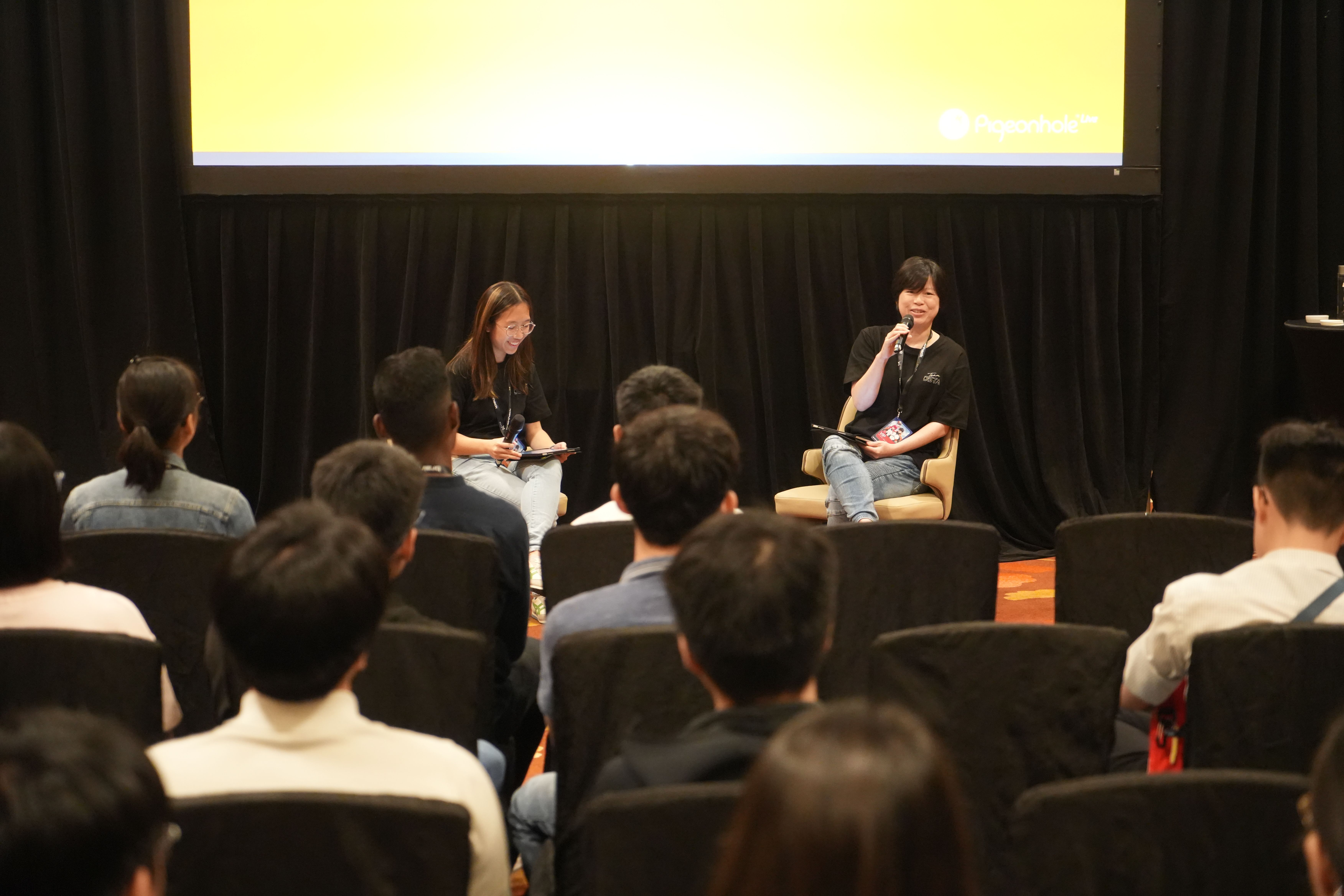Singapore’s defence tech leader Gayle Chan on her leadership journey
By Clare Lin
Defence Science and Technology Agency (DSTA)’s Deputy Chief Executive shared her perspectives on the evolving role of tech during DSTA’s BrainHack 2025 event.
-1750235869898.jpg)
Defence Science and Technology Agency (DSTA) Deputy Chief Executive (Information), Gayle Chan speaking to students at DSTA’s BrainHack 2025. Image: DSTA
Eager youths, hoping to join the defence sector, posed their burning questions to Singapore’s Defence Science and Technology Agency (DSTA) Deputy Chief Executive (Information), Gayle Chan, last Thursday.
Among their questions were: “What is the most memorable project you’ve worked on? How do you see AI disrupting the field of IT and especially cybersecurity?”
Chan was speaking in a fireside chat at DSTA’s BrainHack 2025, a nationwide cybersecurity competition, where she engaged a group of students about her leadership journey and experience in the tech sector.
Get the tear in your eye
Chan recalled that upon seeing the helicopter projects she oversaw take off, she might have teared a little.
She referred to the aircrafts as her “babies” – six helicopters she oversaw during her time there.
“You can't run away, it is going to be etched in your mind.”
To Chan, it was by experiencing the fulfilment of such a project at the beginning of her career that made her career in the defence sector so rewarding and drove her to continue the mission.
“You see what you delivered, and you see it being used in a mission context.”
That experience, she noted, gave her a sense of purpose early on. “Hoping for you, you get the tear in your eye,” she told the students.
“You can see your fingerprints all over it… I think that’s what keeps people kind of excited, especially in the digital domain too. Things never stay the same.”
In the capacity of a leader, seeing her team doing well, having their own ideas, and being able to support them is what drives her today.
The value of exposure
Chan stressed how important exposure and real-world experience was in DSTA. She believed in sending people overseas to broaden their horizons.
“I always love sending people overseas… Because I always think it's a really good learning experience,” she said.
Having experienced it herself in a posting to the US, she shared how she was able to observe the entire process of helicopter manufacturing from sheet metal to flight testing and eventually, deployment with the US Navy.
“I saw that entire chain of [manufacturing] happening. So, I've always been very thankful that I had that experience,” Chan added, noting that it was both eye opening and culturally engaging to be posted abroad.
She added that as she believed such experiences are both hard to come by and typically completely new, she hoped DSTA staff would have the same opportunity when possible.
To subscribe to the GovInsider bulletin, click here.
Starting small
When asked how students or those in an early career can contribute meaningfully to an organisation like DSTA, Chan shared: “In the case of any of the digital development [that is implemented], you will see that you can immediately contribute, very, very early on.
“But what is the secret?” she questioned. “The magic is actually knowing your user. Ultimately, you need to design products that are good for your customer,” she continued.

“It's not about how many years you have before you contribute.
“The key is really having that heart and that alignment, that genuine interest in your customer. And all our customers are different,” she emphasised.
“That will be the magic, I would say [it has] nothing to do [with] your technical skills, because we all assume your technical skills are awesome,” she added, encouraging students not to shy away from the mission due to their lack of experience.
On embracing change
For Chan, adaptability has been a defining part of her journey. Her move into digital systems, she admitted, was a spontaneous but pivotal decision.
“I saw this as you know. Yeah, why not? I haven't tried it before. Sounds intellectually challenging, or at least something new, and let's do it,” she continued.
In her view, it was important for individuals to take advantage of opportunities, and she was always pleased when people were keen to explore new things.
She noted that DSTA offered the chance for change to those who desired it.
She believed that when people try different types of work, it shaped their life experience and made them better people.
“If nothing else, maybe for whatever reason, some actually hate it, at least you know that you never have to do that again,” she continued, urging students to step out of their comfort zones to try the unfamiliar.
AI and cybersecurity
Beyond her personal career, Chan shared insights on the impact of AI disruption on the field of cybersecurity.
She described AI as being almost like a double-edged sword: While it offered an endless supply of data that benefited AI engineers and software development, it also brought challenges in effectively filtering and processing that data.
AI-assisted coding, she noted, has helped speed up development cycles and is especially useful in automating tasks developers typically avoid, like documentation.
“Whether it’s for surveillance or intelligence, it’s been really very, very impactful,” she said, highlighting how AI is reshaping the cybersecurity landscape on every level.